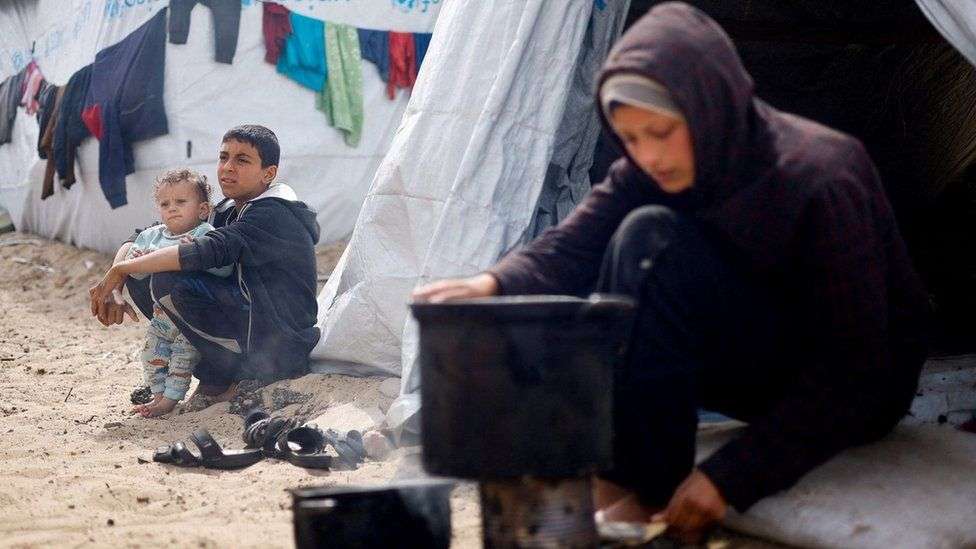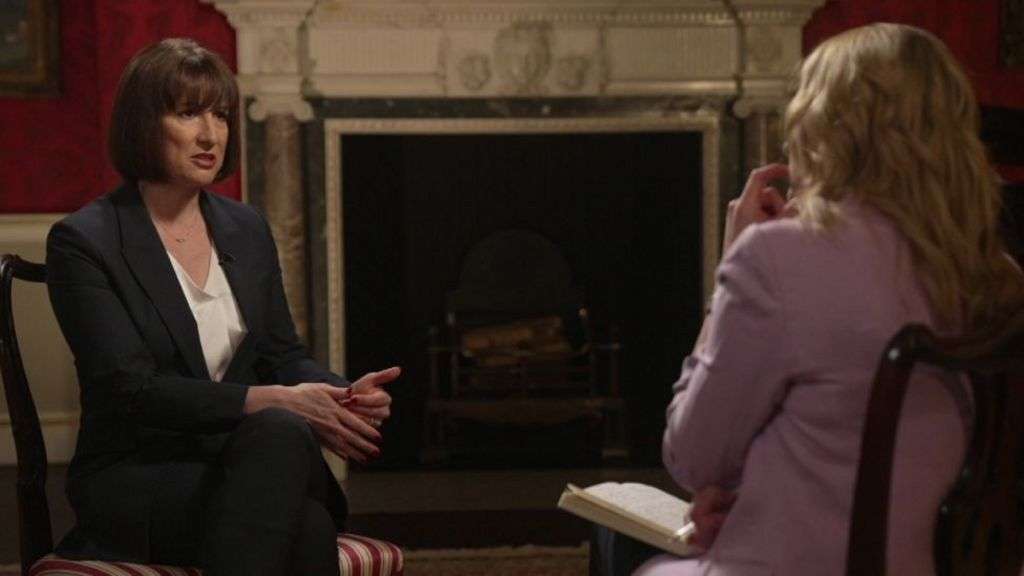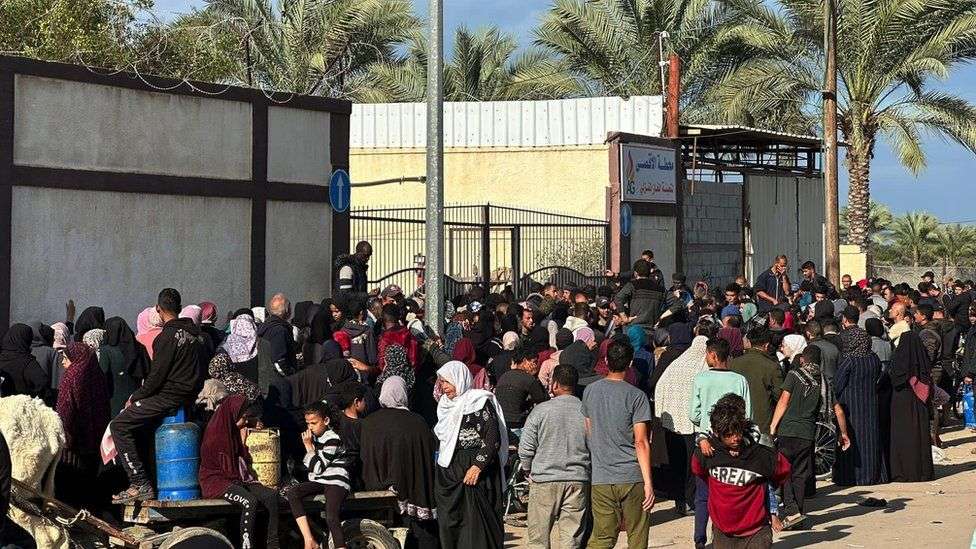A Hamas delegation has left talks in Cairo without a deal for a ceasefire in Gaza, but the armed group says indirect negotiations with Israel are not over.
It had been hoped that a 40-day truce could be in place for the start of the Islamic month of Ramadan next week.
With more signs of a famine looming, international pressure has only grown.
But Egyptian and Qatari mediators have struggled to seal a deal that would see Hamas free Israeli hostages in exchange for Palestinians held in Israeli jails.
Israel did not send a delegation to Cairo, saying it first wanted a list of the surviving hostages who could be released under the agreement.
Hamas said Israel did not accept its demands for displaced Palestinians to be able to return to their homes nor a complete withdrawal of Israeli forces from Gazan cities.
The war in Gaza began when Hamas fighters stormed into southern Israel on 7 October, killing about 1,200 people and seizing 253 hostages, according to Israeli tallies.
More than 30,800 people have been killed in Gaza since then, the Hamas-run health ministry says.
A Hamas statement said its delegation left Cairo on Thursday morning "for consultation with the leadership of the movement, with negotiations and efforts continuing to stop the aggression, return the displaced and bring in relief aid to our people".
Egyptian state-affiliated TV channel al-Qahera meanwhile cited a senior source as saying that the negotiations would resume next week.
Hostages' families and other Israelis have been putting pressure on Israel's government to agree a deal with Hamas
There was no immediate comment from Israel's government.
On Wednesday, the US state department said it believed the obstacles raised were "not insurmountable and a deal can be reached".
The proposed agreement would reportedly see 40 Israeli hostages released in exchange for about 10 times as many Palestinian prisoners being freed from Israeli jails.
More than 130 hostages are still believed to be held by Hamas. Israeli officials have said that at least 30 of them are dead.
Over the course of a proposed 40-day truce, there would be a surge in desperately needed aid entering into Gaza.
During a week-long ceasefire in late November, 105 hostages - most of them women and children - were freed in return for some 240 Palestinian prisoners in Israeli jails.
Without a new deal, there is a higher threat of a further spread of tensions during Ramadan, which this year is due to begin on Sunday or Monday, depending on the lunar calendar.
Meanwhile, amid reports of further deaths in Gaza from starvation, the UK and the US are pressing Israel to increase the flow of aid. Israel is blaming the UN for aid distribution problems.








